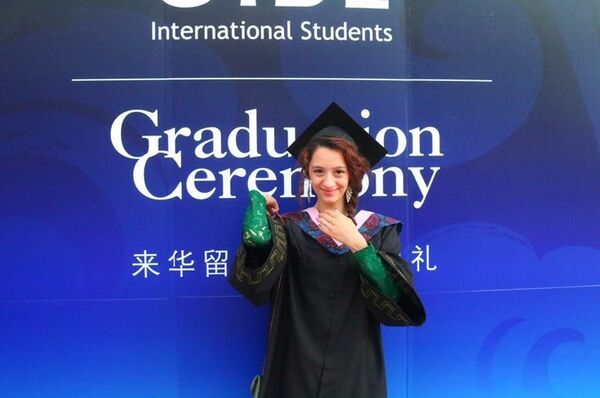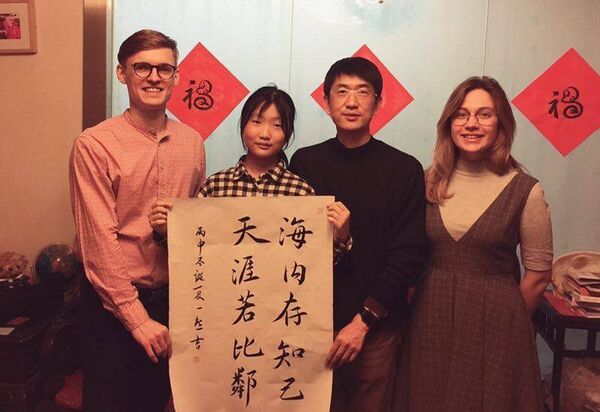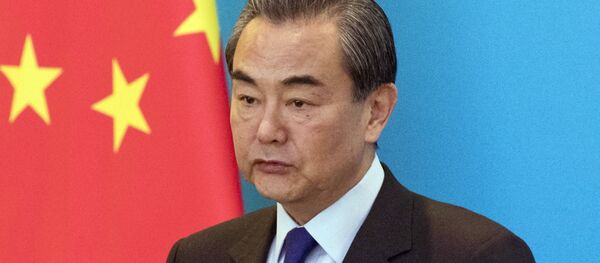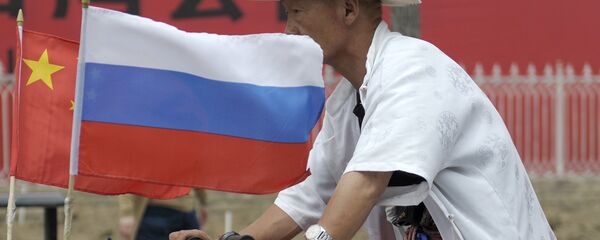Study in China
“I did not intend to study in China but my father decided that such education will provide me with a good future,” Sabina Najafova, a student at the Chinese University of International Business and Economics told Sputnik in an interview.
She has been living in Beijing for almost six years now. For a year she learned the new language, then she started her bachelor's degree and now she is doing her masters. She does not regret her father’s decision; on the contrary, she wants to continue living in China and finding a job there.

It is not easy to study in China primarily because of the language, which according to Najafova is so difficult that she still has to translate her assignments into Russian first.
Another Russian student residing in China is Ekaterina Brusentsova. She is a second-year student at Wuhan University. In order to be admitted to the university, she studied Chinese for over two years.

Barriers in between
This is especially acute in the issue of legislation as it is often difficult for parties to correctly understand each other’s laws and that can lead to a complete failure of a deal.
The trade turnover between Russia and China amounts to 69.5 billion dollars today. Over the past year it grew by 2.2% and it continues to rise, according to the data of the main customs administration of the PRC.
However, in terms of production investments, the Chinese still prefer to study the Russian market instead of investing in it, according to Yevgeny Autushenko, the director for work with investors of the Special Economic Zones. Out of the 545 investors who applied for a production startup within the Russian Special Economic Zones territory, only five companies so far represent China.
It is people such as Sabina and Ekaterina, Russians who went to study in China who can establish cooperation between the two countries, according to Alexander Avakyants, the general director of China Campus Network Russia.
“We want to raise a group of highly sought-after specialists from Russia with the knowledge of the Chinese language, life and traditions, so that they can become a link between the two countries,” Avakyants told Sputnik.
The China Campus Network Russia consists of three stages, “At first it is informing and consulting regarding the choice of university to study in China, then it offers a pre-university preparation which is learning Chinese from scratch and enrolling in one of the universities and finally it is communication with employers in order to assist students with internships and employment,” Avakyants said.
Age is not a criterion
The program is aimed mainly at young people — graduates of high schools. But as Avakyants noted, China is also interested in citizens who have long since graduated from their universities.
The program is specially adapted for Russian students and teaches not only the everyday language but also the academic specifics and other nuances. In other words, students get acquainted with the specific terminology which is peculiar to their profession even before the start of their training.
Difference in teaching practices
As it has been established by now, the two countries have a different culture and the approach to education is no exception.
According to Alexander Mnishko, who came to study to Beijing from Saint Petersburg, “In Russia [teacher] is passionate about students, whereas, in China they come to give their lecture, no matter what the students are doing. They can sleep, eat, look at their computers- the teacher will not pay any attention to that as you are learning for yourself,” Mnishko said.

However, if needed the professor will not refuse in helping the student and will answer any of their questions. Nonetheless, the biggest difficulty in China is not the scores or tests but the specific food and the people themselves.
“Most of those who leave for China prefer to return home and use their experience in Russia – as we do have very different cultures indeed,” Avakyants concluded.





